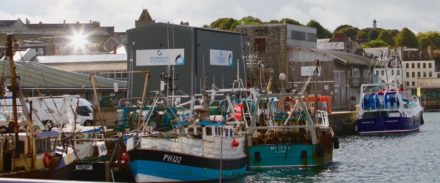
Ever since we joined the European Union, the Common Fisheries Policy (CFP) has been a contentious issue for British ministers heading to Brussels. We’ve all read the articles about overfishing, discards and quotas. We’ve all seen our coastal communities sink into unemployment as the fishing fleets have diminished due to mass competition from continental fishing fleets. But fishing could be a decisive political battleground at the next general election and Labour must ensure it is well placed to represent fishing communities to win a majority.
The government’s transition agreement, announced earlier this week, will effectively keep the United Kingdom as a member of the Common Fisheries Policy until December 2020, but with no say over its rules or evolution. The settlement that will follow this arrangement is yet to be determined. Fishing communities up and down the UK have reacted with anger. Tory MPs are said to have had a frank exchange of views with environment secretary Michael Gove and the chief whip on Monday.
It is now generally accepted that if Labour is to win the next general election, the key battlegrounds must be Scotland and holding on to working class voters who supported leave. As the fishing row has evolved, Labour has remained quiet on the whole affair. Yet this is an opportunity for Labour to appeal to its core vote, which strongly supported leave, and to go on the attack against the Tories and the SNP, particularly in Scotland and along the east coast of England.
One of the most powerful images of the referendum was the ‘Battle of the Thames’, where ordinary working fishermen sailed up the Thames to protest the Remain campaign, only to come face to face with Bob Geldof on his millionaire’s yacht. It represented all that had gone wrong in Britain, the haves and the have nots. Those who had done well out of globalisation and the European Union, and those who had not. A community left behind and an industry declined against a wealthy elite.
One of the most powerful images of post-Brexit Britain could be the sight of EU fishing ships still fishing in British waters if we don’t take back control of our territorial waters. The description of that image will be one word: betrayal. The consequences could be seismic.
The Scottish Tories, many of whom represent fishing communities, have called on the government to guarantee British fishing rights and control after Brexit. They aren’t happy with the transition. SNP MPs have called on Scotland to be outside of CFP rules, suggesting their Europhilia might not be as absolute as previously expressed. Fishing will certainly be a battleground in Scotland in the next election, and Labour needs to be on the side of fishermen and coastal communities.
It’s simple: Labour should totally oppose ongoing membership of the Common Fisheries Policy, and it should oppose the government’s measures to keep the UK in the CFP until 2020. This would provide Labour with an enormous opportunity in Scotland and help the party take on the Tories and the SNP. A policy that would support the environment, industry and jobs would be both popular and sensible.
Similarly such a stance would yield dividends for Labour in England. During the referendum, coastal towns voted overwhelming to leave the European Union. Many of those seats returned Labour MPs last year because Labour voters who supported UKIP in 2015 switched back, such as in Hartlepool. In some cases, including Great Grimsby, Labour held on but with a reduced majority. In many of those coastal communities, more people supported leave in the referendum than supported either the Labour or Conservative candidate at the subsequent general election. This is a fact party strategists ought to remember.
Both Hartlepool and Great Grimsby are proud communities, and a number constituencies and coastal towns stand to gain because of Brexit. Control of our territorial waters should boost the fishing fleets and fish production industry providing jobs, apprenticeships and opportunities to those towns. Labour Friends of Fishing recently launched to reconnect Labour with coastal communities and to develop fishing policy after Brexit.
Labour needs to be onside with those communities now and it should start by calling on the government to announce its immediate intention to withdraw the UK from the Common Fisheries Policy on day one after Brexit. The party should also guarantee that the next Labour government will restore the integrity of those territorial waters for the British fishing industry and work to ensure their sustainability for the long term.
Brendan Chilton is general secretary of Labour Leave.




More from LabourList
A case for hope amid hard times
Eluned Morgan splits with Sarwar and backs Prime Minister
‘Putting our values into action: Labour should make social security work for everyone who needs it’